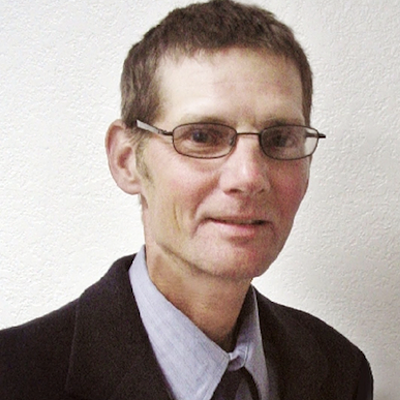Figures provided by Tucson City Attorney Mike Rankin show that Aldridge and his firm, Gabroy, Rollman and Bossé, have received more than $180,000 for defending the city against Thompson's charges. About $29,000 of that has been spent since a jury two years ago awarded her $80,000 after determining water operations supervisor Mike Ring violated Thompson's First Amendment rights. (See "Informant's Revenge," June 9, 2005.)
Since the verdict, Thompson's attorney Steven Sandoval has been trying, so far unsuccessfully, to have a federal judge order that his fees totaling $180,000 also be paid by the city.
As for Aldridge's "get rich" charge, Thompson replies: "If I had stayed with the city, I would be a lot richer today than through the lawsuit." Based on what her former co-workers are now making, Thompson estimates she'd be earning almost $50,000 a year if she had remained with Tucson Water.
Thompson says of Aldridge's accusation: "It was Aldridge who got richer by filing motion after motion."
Aldridge laughs at that claim: "I didn't get rich off it. I worked at a reduced rate."
The case began in 1997 with a sulfuric acid spill at a Tucson Water facility where Thompson worked. Ring directed that the acid be collected and taken to the city's westside water treatment plant, orders which Thompson objected to, because the employees doing the dangerous work hadn't been trained for it, and because the transportation of the acid violated safety procedures. She took her concerns to the Tucson Fire Department, which issued a "stop work" order.
Once that happened, according to court records: "Ring angrily stomped into the room (where Thompson was) flailing his arms, got into Thompson's face, slammed a huge book right next to her, stared directly at her and said who is the fucking idiot that called the fire department."
In another incident referred to at the trial, Thompson stated that Ring, who is a very large man, "threw the sump pump that he was working on directly at her, but she was able to move out of the way before the pump hit her."
When he was investigating the case, Tucson Fire battalion chief Dan Uthe also experienced similar treatment from Ring. Uthe thought Ring lied to him about what had happened and "concluded that Ring was trying to intimidate him." As one of Ring's subordinates testified of his boss: "(He) has stated that he uses intimidation and fear as a management style."
After being transferred to a job at Tucson Water's downtown headquarters, Thompson believed her work environment remained hostile, so she stopped showing up. That resulted in her firing, and she then pursued the federal lawsuit.
After the verdict two years ago, with the approval of Rankin, Aldridge sought to have the jury's decision overturned. But in a ruling last October, federal judge Frank Zapata decided the city's motion presented "an overly sanitized, lopsided version of the facts" and let the award stand.
Based on that, Thompson did finally receive her $80,000 and split it with Sandoval since he had been paid nothing for representing her. But they are still awaiting a ruling on the motion to have the city pay for all of Sandoval's fees.
On the city's behalf, Aldridge strenuously argues against most of the request, pointing out that Sandoval only prevailed on one of the numerous claims he brought against Tucson Water and its employees. Aldridge stresses that Thompson and Sandoval had a pretrial agreement that he would be paid 40 percent of any award. "If it was fair at that time, it's fair now," Aldridge says.
Sandoval didn't return several phone calls seeking comment, but Rankin says it will be the taxpayers who pick up this and the other expenses of the case, which could total close to $450,000. For her part, Thompson hopes a ruling about the fees comes soon, since she is the one responsible for Sandoval's bills.
Asked about the lessons she's taking away from this decadelong experience, Thompson reflects for a moment before saying: "The city does have people of integrity, like Dan Uthe. But there was a culture in the office of the (then-) city manager to sweep this under the rug, and this case was able to prove that this was their culture."
Thompson also wishes the case could have been settled a long time ago, a sentiment shared by Aldridge. But he says she made "outrageous claims for money" that made both a settlement impossible and the case costly to defend.
Thompson recalls that there was a settlement hearing years ago, and she remembers she was called a liar and told the city wouldn't settle the case before going to trial.
Ten years since the acid spill that changed her life forever, Thompson is currently unemployed and looking for a job after working for a while. Meanwhile, Ring continues working in a high-paying position for Tucson Water.
Summarizing her role as a whistleblower, Thompson observes simply: "Most people don't want to give up the government benefits."











